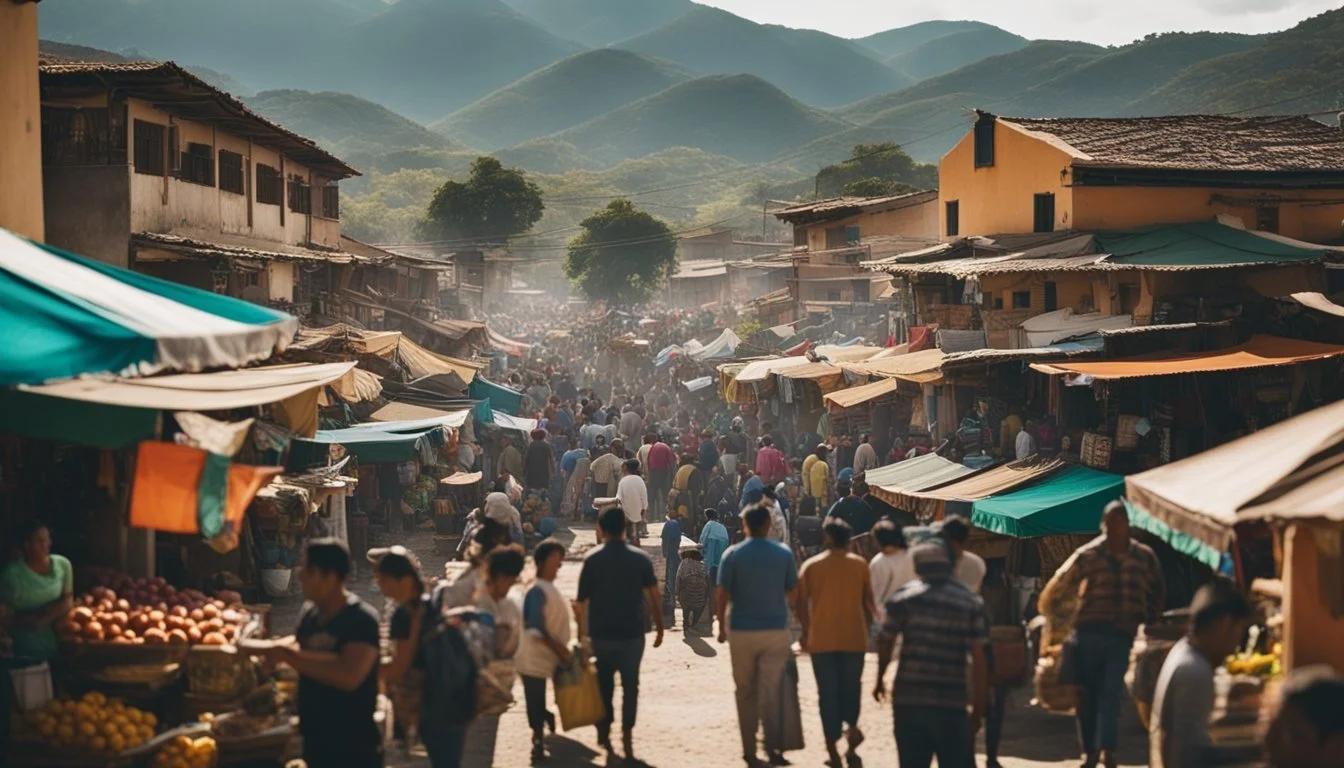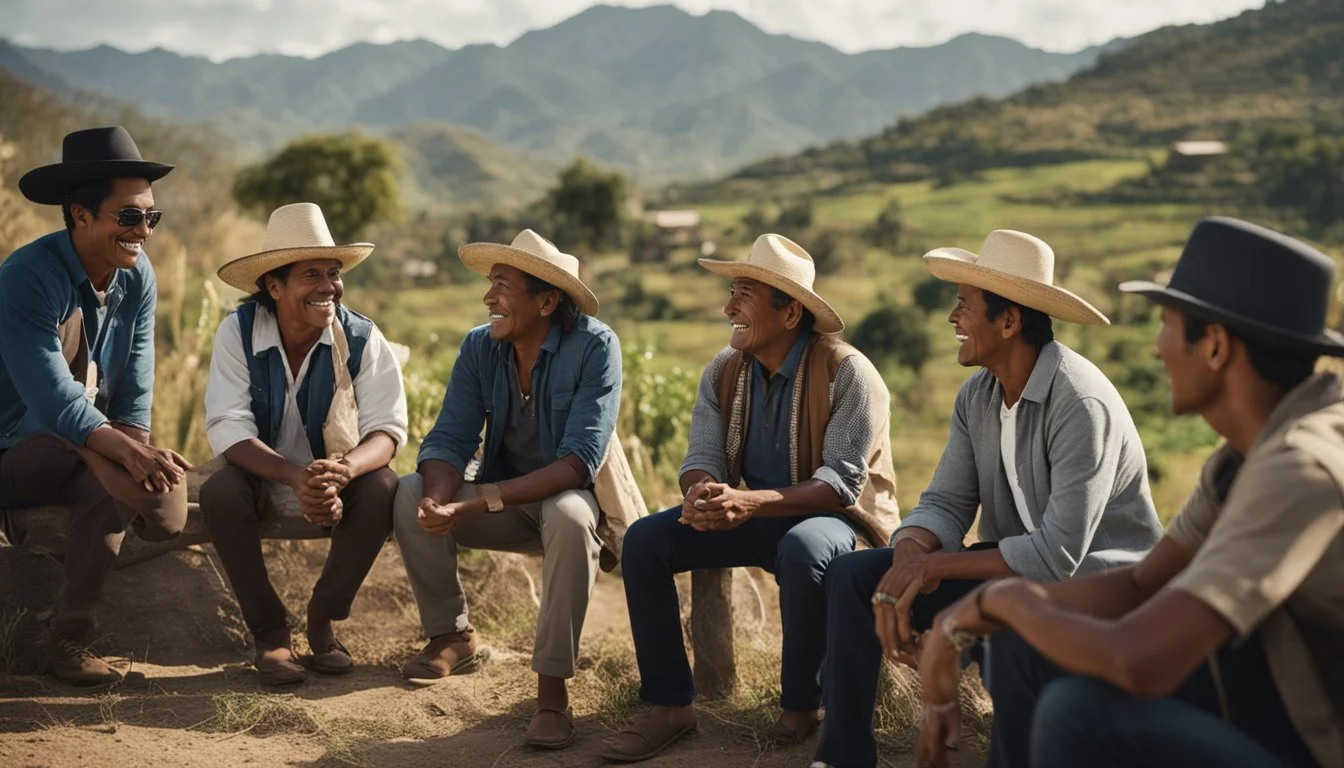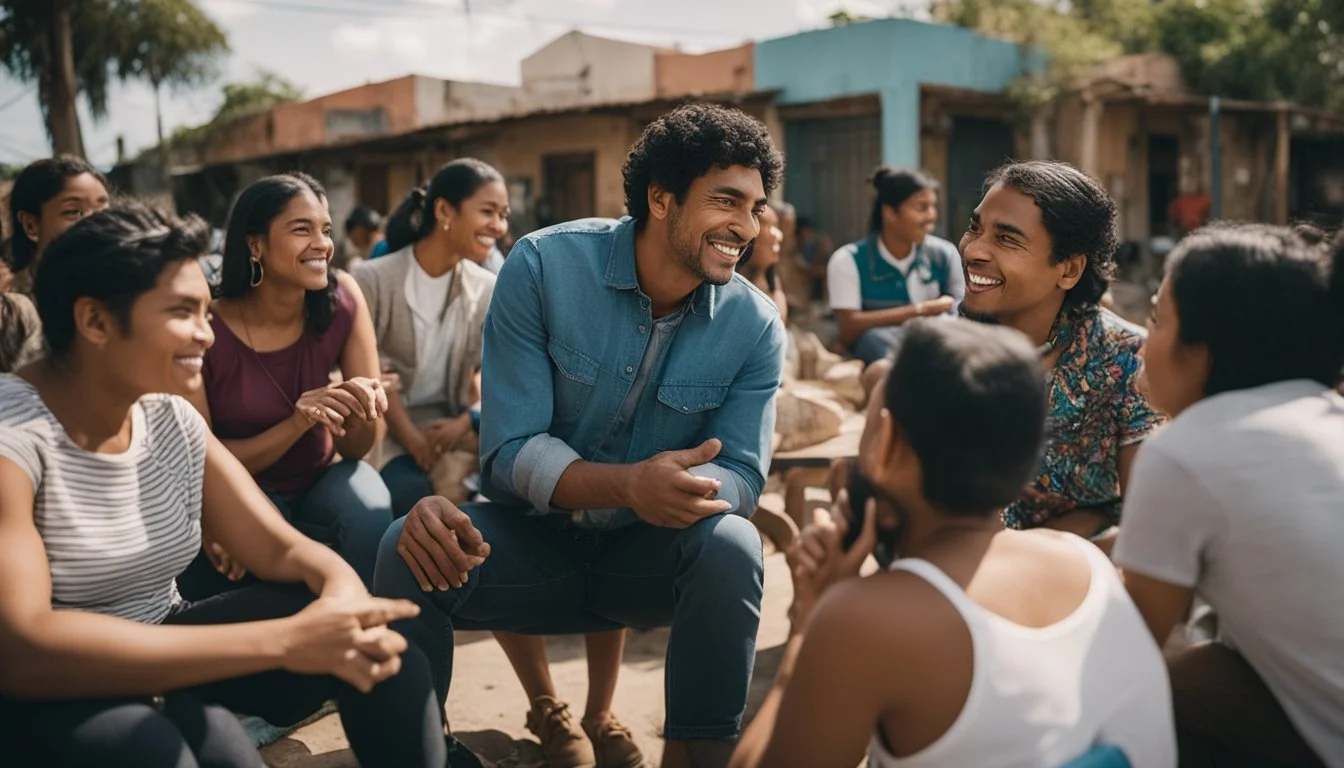Everardo González: Championing Mexico's Marginalized Voices
Everardo González, a renowned Mexican documentary filmmaker, has emerged as a pivotal figure in Latin America's vibrant documentary scene. His films, such as "Drought" (Cuates de Australia), masterfully spotlight the struggles of Mexico's marginalized communities, offering an unfiltered lens into their lives and hardships. By giving voice to the voiceless, González fosters a deeper understanding and awareness of issues often overlooked by mainstream media.
González's works often delve into the psychological experiences of individuals living amidst systemic fear and violence. His unique approach, including the use of masks for anonymity in interviews, allows victims and perpetrators to share their stories without fear of repercussion. This method not only preserves their identity but also empowers them to speak truthfully about their circumstances.
Films like "Drought" encapsulate the stark realities faced by communities battling natural adversities. Set in Northeast Mexico, this documentary follows the annual exodus of residents from Los Cuates de Australia in search of water, symbolizing their relentless struggle for survival. Through his compelling narratives, Everardo González vividly portrays the resilience and spirit of those living on society's fringes, urging viewers to reflect on their plight and advocate for change.
The Artistry of Everardo González
Everardo González skillfully highlights social issues through documentary films, establishing himself as a distinguished figure in both Mexican and international cinema.
Documentary Filmmaking Approach
González employs an immersive and empathetic style, often focusing on marginalized communities. His dedication to authenticity and giving voice to overlooked stories sets his work apart. He believes documentary cinema serves as a powerful tool for social commentary, reflecting real human experiences without embellishment. His films are noted for their intimate portrayal of complex subjects. González’s approach often involves engaging directly with his subjects, gaining their trust, and capturing their narratives in natural settings.
Major Works and Awards
Since his debut with Pulque Song, which won the Mexican Academy Ariel Award in 2003, González has produced numerous influential works. Wilderness, shot among nomadic peoples across several countries, exemplifies his commitment to global human stories. His contributions include Tabasco bajo el agua for Discovery Channel and A Wolfpack Called Ernesto, reflecting on Mexican youth violence. These works have earned him critical acclaim, solidifying his reputation as a leading documentary filmmaker.
The Voice of the Voiceless
Everardo González uses his filmmaking to shed light on the lives and struggles of marginalized communities in Mexico, particularly focusing on indigenous and rural populations, as well as highlighting human rights abuses.
Chronicling Indigenous and Rural Communities
Everardo González's work brings much-needed attention to the often overlooked lives of indigenous and rural communities. In his documentaries, he captures their daily struggles, traditions, and resilience.
One of his notable films, Los Ladrones Viejos: Las Leyendas del Artegio, delves into the lives of elderly thieves from rural areas, highlighting their unique stories.
Through intimate interviews and immersive cinematography, González ensures these communities are seen and heard. This approach not only preserves their cultural heritage but also brings their pressing issues to the forefront.
Exposing Human Rights Violations
González also tackles human rights violations in his films, exposing systemic abuses and giving voice to the victims. His documentary El Paso examines the harrowing journey of Central American migrants and the violence they face.
He uses firsthand accounts and raw footage to illustrate the stark realities confronting these individuals. González's work often faces resistance due to its bold stance on controversial topics.
By focusing on personal stories and providing a platform for those silenced by oppression and corruption, González's powerful films foster awareness and advocate for change. His commitment to truth and justice continues to resonate, impacting audiences and sparking critical conversations.
Cinematic Techniques
Everardo González employs innovative cinematic techniques to explore the realities of Mexico’s marginalized communities, focusing on powerful visual narratives and evocative soundscapes.
Use of Visual Narratives
González uses a contemplative and static style, often featuring long, unhurried takes that allow viewers to absorb the scene fully. This approach emphasizes the gravity of the subjects he covers, giving the audience time to reflect on the harsh realities portrayed. His use of natural lighting and real locations lends an authenticity to the imagery, grounding the stories in their true environments. Color palettes are carefully chosen to reflect the emotional tone of the film, often muted to underscore themes of desolation and resilience.
Sound and Music in Storytelling
Sound design in González's work plays a crucial role in enhancing the impact of his visuals. He often incorporates natural sounds from the environment to immerse the viewer in the setting. Dialogue is captured with high fidelity, ensuring that the voices of the subjects are clear and poignant.
Music is used sparingly and strategically, chosen to reflect the cultural context and emotional weight of the scenes. Traditional Mexican instruments and melodies are frequently utilized to connect the audience with the cultural backdrop of the stories, adding a layer of depth and engagement.
Influence and Reception
Everardo González's work in documentary filmmaking has garnered significant critical acclaim and sparked various discussions due to its poignant portrayal of Mexico's marginalized communities and the challenges he faces.
Critical Acclaim and Impact
Everardo González has emerged as a luminary in the documentary film world. His films, such as Drought (Cuates de Australia) and Ladrones viejos, have been celebrated for their gripping realism. Critics laud González's ability to capture the human side of social issues without sensationalism.
Awards have also recognized his skill. His debut feature, Pulque Song, earned him the Mexican Academy Ariel Award in 2003. Additionally, his participation in prestigious festivals like IDFA in Amsterdam highlights the international recognition of his work. González's films have become influential tools for raising awareness about social injustices in Mexico.
Challenges and Controversies
Navigating the complex and often dangerous landscape of documentary filmmaking in Mexico has been fraught with challenges for González. His works, exploring themes of violence and poverty, have invited criticism and placed him in difficult positions.
Censorship and pushback from powerful figures who dislike his portrayal of sensitive issues are common. The case of Javier Duarte, discussed passionately by González, underscores the risky nature of his work. Despite these challenges, González’s commitment to exposing the realities faced by marginalized communities remains steadfast, reinforcing the critical role of impactful storytelling in documentary cinema.
Collaborations and Support
Everardo González has fostered significant collaborations with other filmmakers and secured essential funding from reputable institutions, enabling his impactful documentaries.
Engagement with Other Filmmakers
Everardo González has built a strong rapport with other filmmakers, particularly within Latin America. His work often involves cooperation with directors who share his vision for highlighting underrepresented narratives.
For instance, he collaborates with peers at prestigious festivals like IDFA in Amsterdam, enhancing international discourse on Mexican socio-political issues.
These partnerships allow González to blend diverse creative perspectives, enriching his storytelling techniques.
Funding and Sponsorships
Funding has been critical to González’s success. He has garnered financial support from noteworthy organizations and film institutes dedicated to promoting cultural and social documentaries.
His projects have attracted sponsors such as the Mexican Academy Ariel Awards, which recognized his debut feature, "Pulque Song", and have further bolstered his career.
This financial backing ensures that González can produce high-quality documentaries that delve into complex societal issues.
Educational and Social Outreach
Everardo González leverages his expertise to foster education and social awareness. His efforts include conducting workshops and advocacy through impactful filmmaking to address pressing societal issues.
Workshops and Speaking Engagements
Everardo González frequently hosts workshops and attends various speaking engagements. These events offer him a platform to discuss his documentary work and its societal implications.
In educational settings, González shares his experiences and techniques in documentary filmmaking. His workshops are often aimed at young filmmakers and students, emphasizing the importance of storytelling in highlighting marginalized voices.
By engaging in these activities, González helps to cultivate the next generation of filmmakers who are keen on social issues. Interactive sessions typically include discussions, hands-on activities, and screenings of his films, offering participants a comprehensive learning experience.
Advocacy Through Film
González's documentaries serve as a powerful medium for advocacy. Through films like "Cuates de Australia" and "La libertad del diablo," he sheds light on critical issues affecting marginalized communities in Mexico.
"Cuates de Australia" depicts the annual struggle of a community facing drought, while "La libertad del diablo" explores the haunting impact of violence. These documentaries are more than artistic expressions; they are tools for social change.
By documenting real stories, González brings broader awareness to systemic issues, fostering empathy and understanding in his audience. This advocacy through film underscores the significant role of visual storytelling in driving social awareness and change.
Legacy and Future Projects
González has significantly influenced new generations of filmmakers and continues to work on innovative projects.
Influence on Aspiring Filmmakers
Everardo González remains a prominent figure in Latin American documentary cinema. His works, including Ladrones Viejos and Drought (Cuates de Australia), are considered essential studies for emerging documentary filmmakers.
González’s storytelling techniques and focus on Mexico’s marginalized communities inspire many.
Young filmmakers often look to his films for lessons in capturing the raw essence of social issues. Workshops and festivals, such as IFF Panama, where González serves as a tutor, also provide aspiring artists with opportunities to learn directly from him.
His films serve as a pedagogical tool, encouraging a new generation to pursue socially relevant topics.
Upcoming Films and Series
Everardo González continues to explore socially significant themes in his upcoming projects. One notable project is El Vientre Yermo, which aims to shed light on unaddressed issues within Mexico.
His dedication to documentary filmmaking ensures that his future works will maintain the impactful, evocative style he is known for.
González is also involved in multiple festivals, such as the prestigious IDFA in Amsterdam, which further showcases his current and upcoming works. His future projects promise to engage audiences and provoke thought on various social and cultural topics, consistent with his established legacy.




